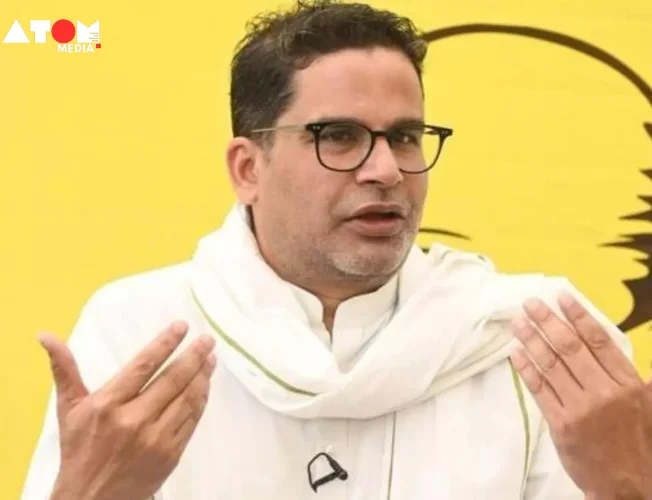Recent events in Bihar’s complex political environment have generated a great deal of controversy and discussion. Renowned for his strategic thinking and crucial role in multiple political campaigns, Prashant Kishor has been a vociferous opponent of Chief Minister Nitish Kumar’s political manoeuvres. Speaking to an audience in Bhagalpur, Kishor was unreserved in his criticism of Kumar, accusing him of betraying the interests of Bihar by requesting Prime Minister Narendra Modi’s backing in order to ensure his political survival past 2025.
The Context of Bihar’s Political Dynamics
One of the most populous states in India and historically influential in the political landscape of the nation, Bihar has undergone numerous changes over time. The state has been led by well-known Bihar politician Nitish Kumar through a number of opportunities and problems. His tenure, which was characterised by realignments and alliances, has frequently been examined for its effects on the political stability and growth trajectory of Bihar.
Prashant Kishor’s Critique Unveiled
The leader of the Bihar JAN Suraaj movement, Prashant Kishor, grabbed attention with his scathing assessment of Nitish Kumar’s recent behaviour. In his speech, Kishor emphasised that Kumar’s actions towards Prime Minister Modi were part of a bigger strategic plan to guarantee his ongoing prominence in Bihar politics after 2025. Political watchers and the general public, who closely follow every move made in Bihar’s complex political chessboard, were moved by Kishor’s accusations.
Allegiance Over Bihar’s Interests?
Kishor’s main point of contention with Kumar is that he put his own political aspirations before of Bihar’s development needs. Kishor drew attention to striking gaps in Kumar’s latest proposals, including his disregard for the need for industrial expansion and Bihar’s youth job issue. Kishor raised ethical concerns about political alignments that could jeopardise Bihar’s autonomy and developmental goals by highlighting Kumar’s interactions with PM Modi.
Bihar’s Socio-Political Fabric Under Scrutiny
Kishor’s comments encourage a closer examination of Bihar’s socio-political structure beyond the overt political rhetoric. With its varied population and rich cultural legacy, the state faces a wide range of issues, from caste-based politics to economic inequality. Even though Kumar’s tactics are focused on political consolidation and survival, they frequently touch on larger societal concerns and aspirations.
Evolution of Nitish Kumar’s Leadership
The political trajectory of Nitish Kumar—from a socialist upbringing to alignment with BJP-led formations—illustrates the changing nature of Bihar politics. Throughout his tenure, Bihar’s political equations have been changed by sporadic rifts and high-profile partnerships with the BJP, among other strategic alliances and pragmatic moves. But Kishor’s criticism highlights what appears to be a shift from Kumar’s previous moral positions, especially his support for PM Modi’s centralising inclinations.
Ethical Dimensions of Political Leadership
Prashant Kishor’s criticism centres on the moral conundrum that political leaders face when attempting to strike a balance between their personal goals and their public duties. In Bihar, where political expediency frequently clashes with developmental imperatives, the level of scrutiny increases. Kishor’s position aligns with those who support moral leadership and ethical government in Bihar’s pursuit of inclusive growth and long-term progress.
Public Perception and Political Realities
The way the public perceives things greatly influences the political dynamics of Bihar. Voters who feel that Nitish Kumar has compromised his integrity and betrayed their confidence are receptive to Kishor’s outspoken criticism of the politician. Such criticisms have an impact on voter attitudes and election results that goes beyond political discourse, particularly as Bihar gets ready for next state and federal elections.
Impact on Bihar’s Political Future
Beyond immediate repercussions, Kishor’s criticism has a wide-ranging effect on Bihar’s political environment. Kishor’s comments add an element of doubt and reflection to the political conversation as Bihar prepares for impending elections, particularly the crucial state polls in 2025. They force all parties involved—political parties included—to reconsider their standards for leadership and their election choices in order to further Bihar’s socioeconomic development.
Path Ahead for Bihar Politics
The criticism of Nitish Kumar’s political tactics by Prashant Kishor is in line with a larger conversation in Bihar about moral leadership and public accountability. His comments highlight the need for leadership integrity and dedication to Bihar’s development aspirations, even above the surface political noise. Bihar’s future trajectory is largely determined by the electorate’s examination of leadership behaviour and policy outcomes as the state negotiates complex socio-political variables.
Read more: Marketing News, Advertising News, PR and Finance News, Digital News, Startup





